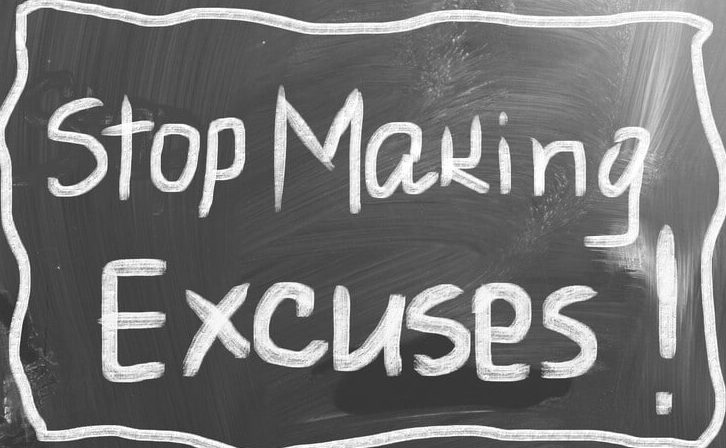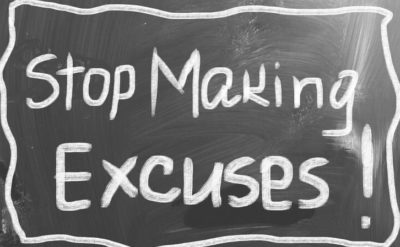Have you ever become frustrated with yourself because you don’t do what you know you need to do to achieve a goal? Maybe you can’t get started or perhaps you start but can’t keep going? Do you know how to stop procrastinating and start getting things finished?
It’s something that most of us are guilty of at some time. It is fact, it is really very common!
It doesn’t matter whether it is:
- Eating something when you know you shouldn’t
- Eating too much at mealtimes when you know you are full
- Snacking between meals on junk food when you know not to
- Drinking more alcohol and soda’s than you should
- Knowing you should exercise but you can’t get off the couch
- Saying Yes when you know the answer you want to give is ‘No’
Should, Could, Have to, Need to
 There is no end to the things we feel we must do; have to do; should do; need to do! So why don’t we do them?
There is no end to the things we feel we must do; have to do; should do; need to do! So why don’t we do them?  Why do we beat ourselves up because we are not doing what we know to do to get the results we are trying to achieve? The answer is simple. We need to change our thinking. But it is not just our thinking we need to change. We need to increase the perceived value to us of doing what we need to get done. We never need to be motivated or inspired to do the things that are of the highest value to us. So, if we link our goals, or our wants to our highest priorities or values we eliminate the need to be motivated to do any task. When you are inspired from within procrastination disappears. Linking your goals to values is how to stop procrastinating.
Why do we beat ourselves up because we are not doing what we know to do to get the results we are trying to achieve? The answer is simple. We need to change our thinking. But it is not just our thinking we need to change. We need to increase the perceived value to us of doing what we need to get done. We never need to be motivated or inspired to do the things that are of the highest value to us. So, if we link our goals, or our wants to our highest priorities or values we eliminate the need to be motivated to do any task. When you are inspired from within procrastination disappears. Linking your goals to values is how to stop procrastinating.
How to Stop Procrastinating?
Procrastination is a symptom of trying to undertake a task you have a low (or no) value on achieving. The moment that your mind believes that a task you should do is a low priority, it will allow you to be distracted by other tasks which have a higher value. Nothing gets in the way of a high-value task.
What are Values?
We all have a set of unique values or priorities that, whether we know them or not, influence every decision and action we make. When you say ‘yes’ when really you mean, No, you are being led by a Value. There is a perceived benefit you want to get. Your logical mind says: I don’t have time for that! but subconsciously you argue: I don’t want to let people down or it will be fine, I’ll manage. Subconsciously, there is a high value being met. Maybe to feel appreciated, to please others; to avoid ‘missing out.’
Where Are Your Voids?
A value is a perceived void in our life that we want to fill. It represents ‘to us’ something that is missing, that we need to fulfill. Our values are unique to us. They are neither right nor wrong, good or bad. They just are what drives us. The greater the need to fill that void, the higher the Value is on our hierarchy of Values – meaning the more influence it has on our daily life.
Greatest Pleasure over Pain
Everything we do is to give us the greatest gain over loss / or pleasure over pain. Our decision may avoid pain or achieve pleasure but it is driven by what we value most at that moment. Your Values can change according to events that happen along the way. When we fulfill a value, it drops down the hierarchy and another value takes its place. Humans are designed to be ‘goal-seeking and achieving’ individuals, but goals without values is not how to stop procrastinating.
Decisions
Your top three to five values influence every decision you make. Think about the last decision that you made. Focus on the internal chatter whilst you made it. This can be as  simple as ‘what to eat for breakfast?’ The difference in the internal chatter will depend on how much you want the outcome. Here is an example :
simple as ‘what to eat for breakfast?’ The difference in the internal chatter will depend on how much you want the outcome. Here is an example :
- On a diet: Seriously focused. Your chatter is about potions, protein, calories, benefits. Will this be good for me?
- On a diet: Not serious. Your chatter will be: what can I eat? nothing tasty; Doesn’t matter what I eat, I’ll still put on weight; Rabbit food?
- Not on a diet: The chatter becomes about choices, what’s available. Breakfast is breakfast. There is no value or low value on eating. There is no void to fill, they are happy with their body and/or appearance. However, if this same person was eating out at a restaurant the chatter would change to include menu choices, value for money, atmosphere, etc. Again, dependant on their needs in relation to budget, food tastes, who was their guest, etc.
Money
Money and financial security are high priority values for a lot of us. If you follow the money trail you will uncover what a person’s highest values are. This is definitely true. We will always find money to do the things we love to do. I often joke with my husband that to ‘test’ if he really wants something or just thinks it would be nice to have. I tell him how many ‘holidays’ he will have to give up in exchange. Travel is one of his highest values. If he says yes to a new car, instead of two or three holidays, I know he is serious. Having a new car has moved up in the hierarchy of his values.
What do you Spend your Money on?
Look at your spending over the past 3 months. What do you spend the most money on? What do you do with ‘windfalls’ such as tax returns? Do you invest the extra money? If you spend it, what do you buy? Think about the ‘why’ you spend regularly on a particular item. Perhaps, you have a direct debit for the gym. Do you go regularly? If so why? if not. why not? All of these answers are clues to your values.
Understand Your Values
Most people do not know or understand the value of knowing their top priorities. it is so important. What you value most determines how you make every decision and choice in your life. When you feel stuck and don’t know how to stop procrastinating, look at what value you are fulfilling. If there is none, find one. If you are in a relationship, learn what makes your partner tick. You will be so glad you took the time to do it. Arguments are simply a clash of values – see the clash and realise it’s nothing to fight over.
Book a Values Determination Session

